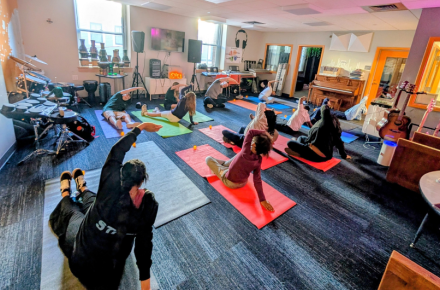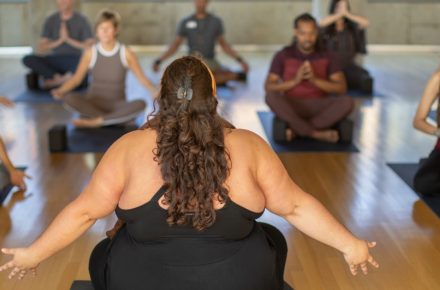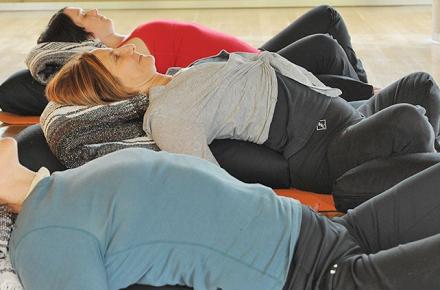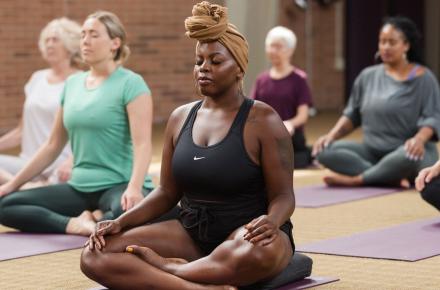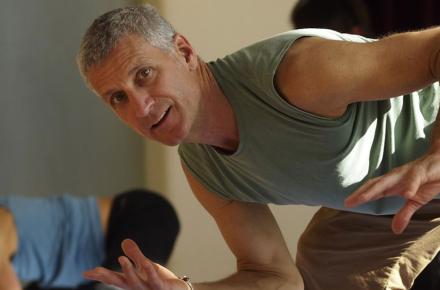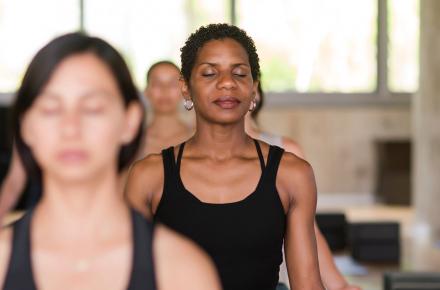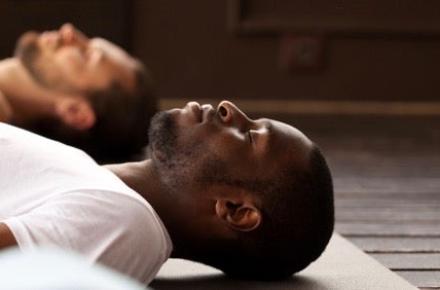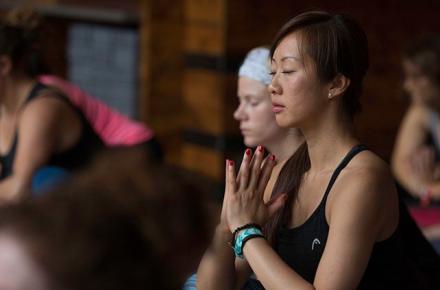The Richness of Silence: What Happens When We Get Quiet

by Janet Arnold-Grych
At one time or another, we all yearn for silence, to be alone with our thoughts or perhaps find respite from them. This longing is not surprising, given the rapid-fire messages and inquiries we volley each day. We simply grow tired of reacting. I know that in my own short, silent stints there is almost a relief in being able to turn inward—to a point. What is it about removing that verbal obligation to respond, to refute, to convince that is so enticing, albeit difficult as well? How does one make friends with the spirited “monkey mind”?
Many spiritual traditions hold a reverence for silence, even creating sects in which silence is elevated to everyday practice. Trappist monks, for example, speak only when necessary to advance everyday activities. Following the Rule of St. Benedict, they hold silence so that they may be more receptive to the teachings around them. Trappist monk, prolific writer, and social activist Thomas Merton said, “God cannot fill a heart or mind that is already full.” He advocated silence and solitude as a means to empty oneself of insignificant thought and assumption, and step into richer awareness.
Jack Kornfield, who comes to Kripalu annually to teach (often during Contemplative Week at Kripalu), remembers a time when he was working at an AIDS hospice and crisis clinic and would return once a month to his small spiritual community, where he savored the silence in particular. “I knew it wasn’t just the prayer or meditation that was important. It was the silence, stopping and taking a breath, opening the heart, seeing that the whole planet, and everything on it, is holy. I want to bring the beauty with me to everyone I touch. So I return to silence regularly. I know if I can stop and remember this, life will fulfill its promise to me."
Both spiritual texts and the acclaimed business writer Stephen Covey outline a key relational principle as “Seek first to understand, and then to be understood.” It’s common to stand first in the light of our own egos and verbally assert our opinions and worth—and then watch for others’ reactions to validate those assumptions, hopes, or fears. To let go of the need for validation in favor of a willingness simply to listen is to change the dynamic of both exchange and thought.
Author Anne LeClaire has been holding the first and third Monday of each month in silence since 1992 and calls silence her “greatest transformational agent.” She says the switch from constantly reacting to simply receiving provides not only a centering and calming effect, but also an awakening of perception and broadening of self-definition. The Yoga Sutras tell us that the mind, by its nature, is in a constant state of flux. Removing the expectation to respond can turn down the mind’s buzz, allowing for separation of the real from the perceived.
This journey of the mind can be assisted by the body. Corina Benner has been teaching yoga for nearly 20 years and training teachers in both vinyasa and Yin Yoga for more than a dozen years. She is a firm believer in the wisdom of silence, having integrated the study of silence into her practice, as well as her classes and trainings. “In my experience,” says Corina, “when the body settles down and stops moving, the busyness of the mind is revealed. The mind is always commenting on what is occurring. Because of this, we’re often buffered from a direct experience of our lives. By sitting still, we cut the momentum of all this speed and actually experience what is going on right here and now. We get to participate in the unfolding of our own lives.”
Embracing silence doesn’t mean that the mind automatically stops sharing its opinions. In fact, it can all feel much louder until the release from response occurs. This requires focus. Rather than giving in to all streaming dialogues, hold one. “Krishnamurti used to talk about following a single thought to its conclusion,” says Corina, “not jumping from branch to branch in the monkey-mind metaphor, but to follow any single thought to its end. When you do that, you arrive at real silence. Even if just for a moment.”
If you change the transmission, you change perception. If our phone connection is filled with static, we settle on certain words and construct meaning by mixing those words and our expectations. But if the static is removed, we can hear the entire message as offered. The pace, responsibilities, and ego-fanning activities that weight each day can inject that static. “We are speeding past the very things we think we are seeking,” says Corina, “but with realization comes the experience of wonder and delight for the most mundane and ordinary occurrences that we so easily take for granted.”
In his TED Talk, world traveler and writer Pico Iyer shared, “In an age of distraction, nothing can feel more luxurious than paying attention.” It almost seems ironic that the absence of speech can nurture some of our richest understandings, not only about the situation at hand but also about ourselves. Silence may be that gateway to truly listen, to truly hear, and to truly experience more of what’s real, more of the time.
Janet Arnold-Grych is a yoga teacher and writer whose work has been published in Elephant Journal, Huffington Post, Third Coast Digest, and other outlets.















